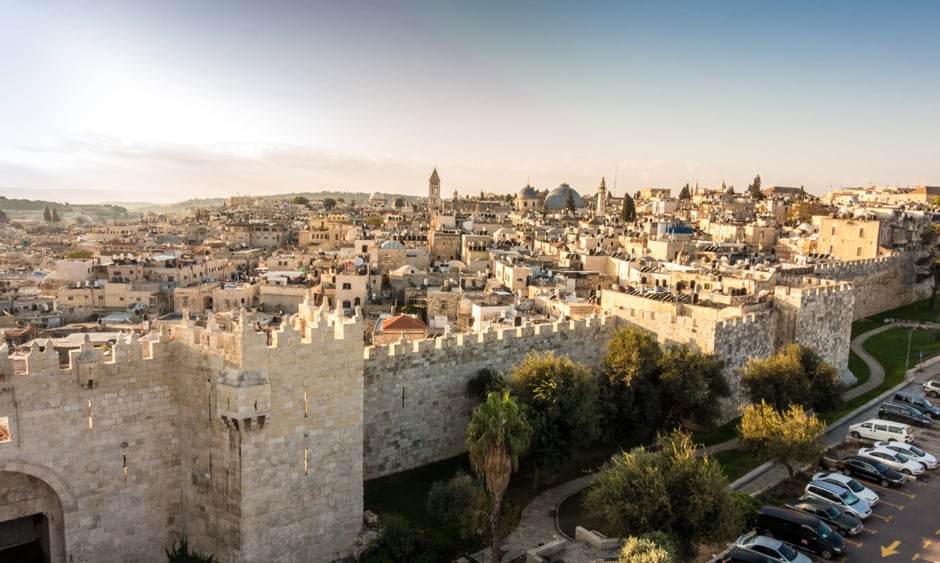There are few places on Earth that can boast as significant a cultural richness as Israel, with Jerusalem, one of the oldest cities in the world, serving as an undoubted beacon of multi-ethnic and international importance. Nestled in the Judaean mountains between the Mediterranean and Dead Seas, the city’s survival of countless sieges and occupations throughout the centuries is truly testament to its enduring legacy. Jerusalem’s diverse and compelling history is reflected in its contributions on the modern world stage to fields such as education and science, making it an alluring platform for the coming together of like-minded specialists for discussion and debate.
For these reasons, it was not surprising to see the excitement of the global colorectal surgery community be assuredly piqued following announcement that this year’s Cleveland Clinic Florida-affiliated International Colorectal Disease Symposium (ICDS), in memory of the late David G. Jagelman, was to be held in Jerusalem in 2020 joint with the Annual Meeting of the Israeli Society of Colon and Rectal Surgery. This was the first time in its history that the Symposium was held outside of its usual home in Fort Lauderdale, Florida, USA, and there was understandable optimism in the air regarding the opportunities this would allow for colorectal surgeons from vastly different clinical environments and societal backgrounds to share key insights.
The event’s faculty was to comprise over 60 of the most esteemed and renowned figures in the colorectal surgery field, representing over 20 countries. Several hundred participants from over 40 countries were present to receive quality lecturing across 4 engaging days, and an inclusive atmosphere was further generated through the donor-enabled sponsorship of more than 70 fellows in training and residents in training from low-income and middle-income countries.
The scientific programme at this year’s event was aptly categorised into ten distinct sessions: 1) the value of fluorescence imaging for perfusion; 2) best practices for rectal cancer; 3) challenges to conquer; 4) critical conundrums; 5) new horizons; 6) the evolution of education; 7) free papers; 8) optimising our performance; 9) perplexing perennial problems; and 10) pelvic floor pathology. The first session on fluorescence imaging, to which an entire pre-conference day was dedicated, received sponsorship from six key industry innovators, talks from whom helped broaden the discussion across medical and business disciplines. Current controversial and cutting-edge aspects of colorectal surgery were discussed, including rectal cancer, inflammatory bowel disease, stem cells and regenerative medicine, the impact of psychological and physical conditioning on surgical outcomes, and new technologies and techniques.
In this Congress Review you will read highlight features compiled in-house by our talented editorial team. David G. Jagelman’s name is inexorably linked with this event, for he was a global role model within the colorectal surgical community. Prof Steve Wexner provided a touching memorial, which was followed by an inspiring talk by Cleveland Clinic Florida CEO and President Dr Wael K. Barsoum on the innovations of the technology sector being developed to meet challenges in global healthcare: both are spotlighted in the following pages. The revealing history of colorectal surgery is presented to provide context to how far this field has progressed since its early beginnings and to offer speculation as to what is possible in decades to come. This future, in all its excitement, will assuredly be heavily influenced by the advances being made in fluorescence-guided surgery, offering precision care to patients and facilitating enhanced training for young surgeons in ways that would have once seemed a pipe dream. This potential for improving education in particular is given increased attention in a feature describing the use of AI technology to transform surgical learning in the fast-approaching future. A biopic on organiser Prof Wexner is also included.
We had the pleasure of meeting many of the specialists who are guiding put this innovation into practice. Dr Ron Landmann, Prof Manish Chand, Dr Miklosh Bala, Prof Abe Fingerhut, and Prof Steve Wexner graciously shared with us their impressions of where the colorectal surgery field has evolved from, where it stands now, and where it is set to go. Our interviews with each touch on important topics such as fluorescence-guided surgery, the minimally-invasive approach to colorectal surgery, and aspects of trauma surgery, all shared in their entirety for your reading pleasure.
As official publisher of the meeting, EMG-Health was proud to sponsor and present awards to the top three presentations given, selected by the expert organising faculty: Dr Shani Parnasa’s session titled “Does Caffeine Enhance Bowel Recovery After Elective Colorectal Resection? A Prospective Double Blinded Randomized Trial”; Dr Leigh Nadler’s session titled “ERAS- Enhanced Recovery After Surgery, Outcomes at St Clair Hospital”; and Soterios George Panousopoulos’ session titled “Specimen Quality of Transanal Total Mesorectal Excision (TaTME)”. All three were sterling additions to the programme.
Summaries of key findings presented at the meeting are also included within. Swartling et al. and Panousopoulos et al. provide key insights into the outcomes and specimen quality of transanal total mesorectal excision, respectively, whereas Djadou et al. discuss risk factors and outcomes of stomas in cytoreductive surgery and hyperthermic intraoperative peritoneal chemotherapy for colorectal and appendiceal tumours. An Israeli team led by Alon Pikarsky also share their take on the event.
As the event shifts back to the USA next year, it will be exciting to see not only how far many of the concepts discussed in Israel have progressed, but this new delegacy once again collaborate to make the meeting an even more resounding success. Until then, we hope you enjoy the following highlights from an engaging week in Jerusalem.








